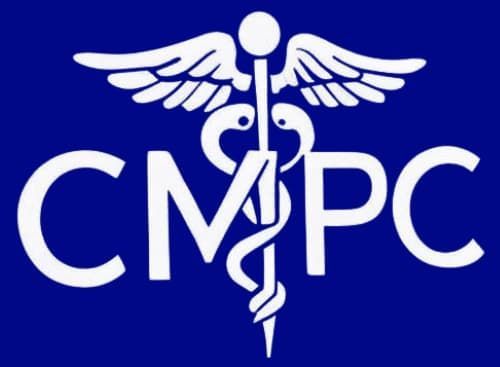
Deciding how much weight to lose can be a challenging yet essential step in improving overall health and well-being. For individuals with a high BMI, setting a realistic and achievable weight loss goal is crucial to reducing health risks, enhancing mobility, and boosting self-confidence. The ideal weight loss target varies depending on individual health conditions, lifestyle, and personal objectives.
Know the Health Benefits of Weight Loss
Even a modest weight loss can lead to significant health improvements. Research indicates that losing just 5-10% of your body weight can result in:
- Improved Cardiovascular Health: Maintaining a healthy weight can significantly lower blood pressure and cholesterol levels. This is crucial for reducing the risk of heart disease, which is a leading cause of death worldwide. Achieving and maintaining an optimal weight helps the heart work more efficiently and lowers the strain on blood vessels, contributing to overall cardiovascular well-being.
- Better Blood Sugar Control: Excess body weight is closely linked to insulin resistance, which can lead to type 2 diabetes. By managing weight effectively, individuals can decrease their risk of developing this condition and improve their insulin sensitivity, allowing the body to utilize blood sugar more effectively. This can also stabilize energy levels and reduce the likelihood of blood sugar spikes.
- Joint Pain Reduction: Carrying excess weight stresses weight-bearing joints like the knees and hips. By reducing weight, individuals can alleviate this pressure, leading to less pain and discomfort during daily activities. It can enhance mobility and physical activity levels, improving overall quality of life.
- Enhanced Sleep Quality: Obesity can contribute to sleep disorders, including sleep apnea, which interrupts breathing during sleep. Losing excess weight can help alleviate sleep apnea symptoms and improve sleep patterns. Better sleep quality leads to improved mental and physical health, allowing individuals to feel more rested and energized throughout the day.
- Increased Energy Levels: When an individual carries excess weight, everyday activities can feel more laborious, leading to increased fatigue. Weight loss can enhance mobility and significantly reduce feelings of exhaustion. Increased energy levels make individuals more likely to engage in physical activities, resulting in a positive feedback loop promoting health and fitness.
Factors to consider when setting a weight loss goal
Your weight loss target should be based on multiple factors, including:
1. Current BMI and Health Status
Individuals with a Body Mass Index (BMI) of over 30 are classified as obese and are generally recommended to pursue a weight loss of 10-15% of their total body weight. This percentage is significant because achieving this level of weight loss can lead to meaningful improvements in health outcomes.
For instance, research indicates that even a modest weight reduction can help lower the risk of chronic diseases, improve cardiovascular health, enhance mobility, and reduce symptoms associated with obesity, such as joint pain and fatigue. Furthermore, this weight loss target contributes to better physical health and can positively influence mental well-being and self-esteem.
Moreover, individuals suffering from obesity-related conditions such as hypertension (high blood pressure), type 2 diabetes, or sleep apnea may need to set specific and more ambitious weight loss goals. For these individuals, losing weight can be especially crucial since it may help manage and decrease the severity of their conditions.
Medical supervision is essential in such cases to ensure that the weight loss efforts are safe and effective, considering each individual’s health history and needs. Healthcare professionals can provide tailored advice, support, and monitoring, enhancing the chances of achieving and maintaining weight loss healthily.
2. Personalized Health Goals
Achieving and maintaining a healthy weight is crucial for reducing the risk of chronic diseases such as diabetes, heart disease, and certain types of cancer. One of the primary goals when considering weight management is to lower these risks through lifestyle changes, including diet and exercise.
Research indicates that losing 5-10% of your body weight can significantly contribute to this goal. For example, if you weigh 200 pounds, a weight loss of just 10 to 20 pounds could improve health markers, including blood pressure and cholesterol levels.
However, additional weight loss may be necessary for individuals looking to improve their overall health or achieve a healthier BMI. The BMI is a standardized measure that helps categorize individuals as underweight, normal weight, overweight, or obese based on their height and weight.
Aiming for a BMI within the “normal” range promotes better physical health and can enhance mental well-being, increase energy levels, and improve overall quality of life. It’s essential to approach weight loss sustainably, focusing on long-term habits rather than quick fixes to ensure lasting benefits and reductions in chronic disease risks.
3. Sustainability and Long-Term Success
Setting gradual, achievable targets such as losing 1-2 pounds per week is a key strategy for building sustainable habits when it comes to weight management. This approach allows individuals to adjust to their new lifestyle changes without feeling overwhelmed or deprived.
Targeting small, attainable goals makes people more likely to stay motivated and committed to their fitness journey. Over time, these incremental changes can lead to significant progress without the mental strain often associated with strict diets or rapid weight loss programs.
On the other hand, rapid weight loss may seem appealing, but it can harm the body. When individuals lose weight too quickly, they risk losing muscle mass, which is essential for maintaining a healthy metabolism. Furthermore, swift weight loss can cause nutritional deficiencies, as the body may not receive the necessary vitamins and minerals for optimal function.
Lastly, it can lead to metabolic slowdown, where the body adapts to a lower caloric intake by reducing the metabolic rate, making it harder to maintain weight loss in the long run. Thus, gradual weight loss promotes better physical health and encourages a more sustainable and enjoyable approach to dieting.
3. Psychological and Emotional Well-Being
Setting attainable goals is crucial for personal growth and well-being. When individuals establish realistic and reachable objectives, they are less likely to experience feelings of frustration that often arise when expectations are set too high.
This reduction in frustration can lead to increased motivation, as achieving smaller, achievable goals can provide a sense of accomplishment and encourage further progress. This positive reinforcement helps cultivate a productive mindset, enabling individuals to strive for continued success without feeling overwhelmed.
Additionally, shifting the focus from weight-related outcomes to non-scale victories can significantly enhance overall satisfaction. Non-scale victories encompass achievements not quantified by numbers on a scale, such as improvements in mobility, improved mood, better sleep quality, or increased energy levels.
Celebrating these achievements can provide a more holistic view of health and wellness, promoting a sense of success and fulfillment that transcends traditional progress metrics. By recognizing and valuing these non-scale victories, individuals can foster a more positive relationship with their bodies and their health journey, leading to sustained motivation and overall happiness.
Calculating a Realistic Weight Loss Goal
A practical way to determine a healthy weight loss goal is to consider the following approach:
- 5-10% Rule: Multiply your current weight by 0.05 to 0.10 to estimate a healthy initial weight loss goal.
- Body Mass Index (BMI): Aim to achieve a BMI within the 18.5-24.9 range if realistic for your body composition.
- Waist-to-Hip Ratio: A healthy target is a waist circumference below 35 inches for women and 40 inches for men.
Example Calculation: If you currently weigh 250 lbs:
- 5% of 250 lbs = 12.5 lbs (initial goal)
- 10% of 250 lbs = 25 lbs (long-term goal)
Achieving Your Weight Loss Goal Safely
To reach your weight loss target healthily, consider the following strategies:
- Balanced Diet: A balanced diet is essential for maintaining overall health and wellness. It emphasizes the consumption of a variety of nutrient-dense whole foods, which include fruits, vegetables, whole grains, lean proteins such as chicken, fish, tofu, and legumes, healthy fats found in nuts, avocados, and olive oil, and complex carbohydrates such as brown rice and quinoa. These food groups give the body the necessary vitamins, minerals, and energy to function effectively.
- Regular Physical Activity: Regular physical activity is crucial for physical and mental well-being. The general recommendation is to aim for at least 150 minutes of moderate-intensity aerobic exercise each week. This can include activities like brisk walking, swimming, or cycling. Additionally, incorporating strength training exercises at least twice a week helps build muscle, increase metabolism, and support overall fitness.
- Behavioural Changes: Making sustainable behavioural changes can significantly impact your health. Mindful eating involves paying attention to your hunger cues and savouring each bite, which can help prevent overeating. Portion control is about being aware of serving sizes to avoid consuming excessive calories. Moreover, stress management techniques such as meditation, yoga, or deep breathing exercises can improve emotional health and prevent stress-related eating.
- Medical Support: Seeking medical support can provide valuable guidance tailored to your needs. Consulting with healthcare professionals, such as dietitians or doctors, can help you develop personalized nutrition and exercise plans. For those looking for non-surgical weight loss options, treatments like the Allurion Gastric Balloon can assist in managing weight by reducing appetite and facilitating a healthier lifestyle.
- Tracking Progress: Monitoring your progress is key to reaching health goals. Utilizing journals or mobile apps can help you keep track of your food intake, activity levels, and weight changes. This not only provides accountability but also allows you to identify patterns and make adjustments in your diet and exercise routine as needed.
Common Pitfalls to Avoid
- Setting Unrealistic Goals: One of the common pitfalls in weight loss journeys is the establishment of overly ambitious goals. For example, aiming to lose substantial weight in an unreasonably short timeframe can often set individuals up for disappointment. Not only can this lead to frustration, but it may also encourage unhealthy practices such as extreme dieting or excessive exercise, which can ultimately harm both physical and mental health. Setting attainable and realistic goals that foster a sense of achievement and encourage steady progress without jeopardizing overall well-being is crucial.
- Focusing Solely on the Scale: While many individuals heavily rely on the number shown on the scale to measure their weight loss success, this perspective can be limiting. It’s essential to recognize and celebrate non-scale victories, which include improvements in stamina, enhanced sleep quality, increased energy levels, and the potential to reduce medications related to health conditions. These victories are significant indicators of overall health and well-being, showcasing that progress can manifest in various forms beyond just weight loss.
- Neglecting Support Systems: The support system is another critical aspect of a successful weight loss journey. Engaging family, friends, or professional advisors can enhance motivation and accountability. A network of individuals who encourage you can provide emotional support, share tips, and keep you focused on your goals. It’s important to foster these connections, as they can play a pivotal role in helping you stay committed and navigate challenges effectively.
Consider this
Determining how much weight to lose is a highly individualized decision that should be based on your health status, lifestyle, and long-term sustainability. Aiming to lose 5-10% of your body weight is a great starting point to experience significant health benefits. Consult a healthcare professional to create a personalized weight loss plan that aligns with your unique needs and goals.










